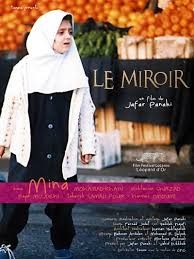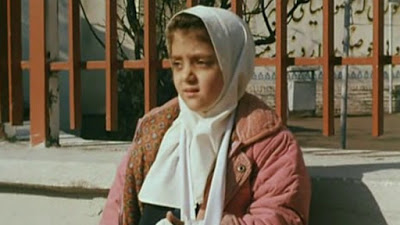This second film from Iranian director Jafar
Panahi is a remarkable film on a few levels. It is a mini-Odyssey in which
a little girl tries to find her way home after school through the chaos of
Tehran and it pulls you in with its natural story-telling, her huge eyes
and the seemingly authentic street scenes and dialogue. Then suddenly halfway
through Panahi takes the artifice of film and smashes it with a hammer to
show us reality - which in the end is perhaps the biggest artifice of all.

Throughout the film it is difficult to know what is script and what is happenstance
- are those actors she is talking to or just random people she meets. The
film is innovative and constantly clever with camera work that is more than
impressive as it wanders through Tehran - because the entire film is shot
out on the jumbled streets of this enormous city in which the crowded sidewalks
and insane traffic are as much enemies to the filmmakers as for this little
girl trying to navigate her way home at ground level. Every time she crosses
the street you hold your breath as cars and trucks whiz by missing her by
fractions of a heartbeat.
Panahi's first two films - this one and The White Balloon (which I have to
re-watch) - are about children - little girls caught up in the adult urban
world with a mission. And forgoing political critiques and focusing on innocent
children, both were shown in theaters in Iran. It wasn't until his third
film The Circle that Panahi's films began getting banned.
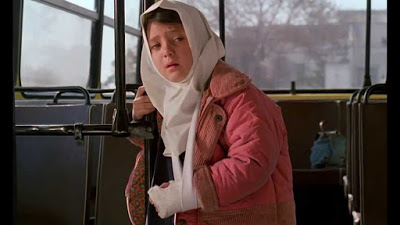
The film opens up with a girl's school being let out as they all rush away
to waiting parents or their way home. One little girl in her scarf covering
her head, pink jacket and a cast on her arm remains waiting for her mother.
When the mother doesn't show up she strikes out on her own though clearly
clueless about where to go but determined like a miniature bulldozer. She
gets on a bus - men in the front and women in the back - and listens in on
the various conversations going on around her - a fortune teller, a bride
and bridal party buying items for the wedding (with her fiancé looking
at her from the men's section with adoring eyes), an older woman telling
a stranger about her dead husband and how her son is embarrassed by her.
Conversations intercutting one another like flies buzzing back and forth.
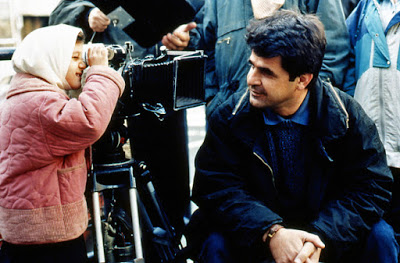
At the end of the bus ride, she is told that she has gone in the wrong direction
and has to board another bus. She does but suddenly the girl - or the actress
(Mina Mohammad Khani - sister of the little girl in The White Balloon) -
declares that she is tired of making this film and wants to go home and tears
off her cast and scarf with the words this makes me look like a baby. A diva
moment! But suddenly the artifice collapses and all those people around her
and on the bus shed their film identities - one of the men complaining that
he got a haircut for this role and now the film is over. And that part is
- but the film isn't - as Mina, the little girl, stubbornly refuses to come
back and heads for her real home - which again she is not real sure about
- she is a second grader. And the film crew follows on the bus as she attempts
to walk or taxi home - asking strangers along the way for help and then generally
refusing it. All this done in the natural flow of traffic - foot and car
- that must have been logistically a nightmare.
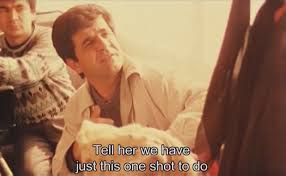
To make the artifice more confusing and abstract Mina runs into the woman
who was complaining on the bus sitting on a bench who tells her that her
son doesn't want to see her. Later she gets a ride with a man who claims
to be the dubber for John Wayne who tells her he saw her acting outside the
school a week ago - cracking the supposed time line in which a football match
between Iran and Korea has been heard repeatedly in the background on the
radio. Clearly though this was all planned out carefully - or was it? Mina
does a terrific job but for me the real character was Tehran - what a raucous
overwhelming city throbbing with life.
